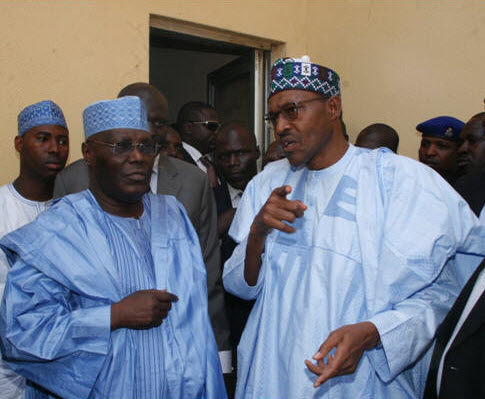There are no products in your shopping cart.
| 0 Items | £0.00 |

 NIGERIAN commercial banks are holding back on lending due to the uncertainty over the forthcoming 2019 elections while foreign direct investment (FDI) has also dropped as fears grip investors about that the future holds.
NIGERIAN commercial banks are holding back on lending due to the uncertainty over the forthcoming 2019 elections while foreign direct investment (FDI) has also dropped as fears grip investors about that the future holds.
In February, Nigerians will go to the polls to elect a president a national assembly and 30 of her 36 state governors and political tension has begun rising across the country. For the presidency, President Muhammadu Buhari of the ruling All Progressives Congress (APC) will be pitched against former vice president Alhaji Atiku Abubakar of the Peoples Democratic Party (PDP) and the sparks between the two parties have already begun to fly.
According to Ike Chioke, the managing director of Afrinvest West Africa an investment and research firm, many commercial banks will restrict lending plans ahead of the 2019 general elections. Speaking during the release of the 2018 Nigerian Banking sector Report in Lagos, he said lenders are already cutting loans to key sectors of the economy due to the need to reduce the political risks and ensure the safety of their funds.
Pointing out that political uncertainty is affecting the economic climate, Mr Chioke, who released the report at the event titled An Economic Agenda for A New Government, said banks are afraid of taking risks with their funds. He added that election fears have also led to drop in foreign direct investments entering the country.
Mr Chioke added: “ Four years after the 2015 general elections, Nigeria proceeds to the polls again in 2019 to determine its leadership for sub-nationals and the presidency. In predictable fashion, the political environment is heating up, new alliances are emerging and defections across the biggest parties have punctuated the polity. These events are evidence of the prevailing political risk factor in Nigeria, creating uncertainty in the environment, with potential impacts on business and investor confidence”
He projected that growth would reach 2.1% year-on-year in 2018, revised downwards from initial expectation of 2.6%, given the slower-than-expected recovery in the non-oil sector. “To achieve this, we believe that increased spending ahead of the 2019 elections will support non-oil sector activities, while increased oil output due to an additional 0.2 million barrels per day from the Egina Oil Field will drive oil sector growth.
“Indeed, more worrying is the fact that growth remains below population growth, which indicates that people have grown poorer on average, and this trend will persist into 2020. In our opinion, breaking out of this cycle requires structural reforms, without which investment and growth will remain poor,” Mr Chioke said.
On the state of the banks, he added that the banking sector proceeded into 2017 on the back of successive years of growth in revenues and earnings. With economic conditions deteriorating, Mr Chioke added that the expectation was that the industry was entering a low-growth phase when strong return on equity performance of the past would drop but the industry remained resilient in the face of significant pressure.
He said that banks’ return on equity rose as revenue and profits accelerated, while their capitalisation was stronger, with average capital adequacy ratio rising to 20% in 2017 from 18.4% in the previous year. However, despite improving micro-economic fundamentals, banks’ asset quality deteriorated, further in 2017, with industry non-performing loans increasing to 9.3%.
Mr Chioke said the financial performance of the sector was driven by the tight monetary policy of the Central Bank of Nigeria, which with its overreaching responsibility for price stability, kept rates high and system liquidity low by conducting consistent open market operations. He added that consequently, at the start of the year, banks were able to lock in high yield investments, which crowded out private sector borrowing, while in the latter part of the year, market volatility allowed some operators to record substantial trading gains.